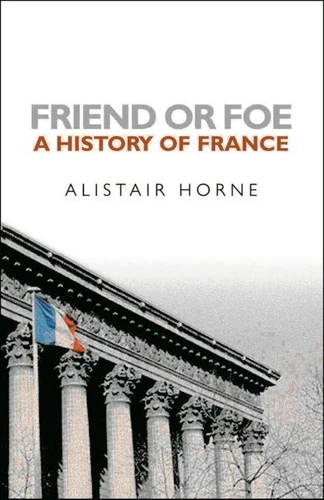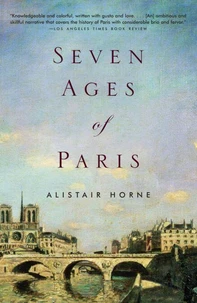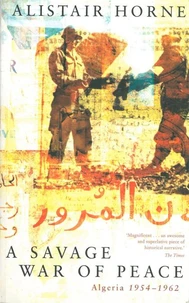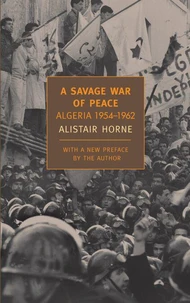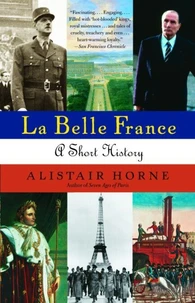Friend or Foe. A History of France
Par :Formats :
Disponible dans votre compte client Decitre ou Furet du Nord dès validation de votre commande. Le format ePub protégé est :
- Compatible avec une lecture sur My Vivlio (smartphone, tablette, ordinateur)
- Compatible avec une lecture sur liseuses Vivlio
- Pour les liseuses autres que Vivlio, vous devez utiliser le logiciel Adobe Digital Edition. Non compatible avec la lecture sur les liseuses Kindle, Remarkable et Sony
- Non compatible avec un achat hors France métropolitaine
 , qui est-ce ?
, qui est-ce ?Notre partenaire de plateforme de lecture numérique où vous retrouverez l'ensemble de vos ebooks gratuitement
Pour en savoir plus sur nos ebooks, consultez notre aide en ligne ici
- Nombre de pages240
- FormatePub
- ISBN978-1-78022-443-5
- EAN9781780224435
- Date de parution02/05/2012
- Protection num.Adobe DRM
- Infos supplémentairesepub
- ÉditeurWeidenfeld & Nicolson
Résumé
Britain's premier historian on France from Caesar to Mitterrand - to coincide with the centenary of the Entente CordialeA century after the Entente Cordiale ended centuries of war and enmity between France and Britain, and two hundred years after the coronation of Britain's deadly enemy, Napoleon Bonaparte, as Emperor, Alistair Horne contemplates two thousand years of France. The Entente Cordiale meant different things to the signatories.
For France it meant, quite simply, the certainty at last of an ally who would counter-balance the dread power of Kaiser Wilhelm II's vast and menacing Reich on her doorstep. For Britain the Entente signified an end to centuries of conflict with France, but it also meant inevitable involvement in a major European war. The modern rift over the Iraq war has emphasized once again that a slim channel of water may be all that separates the countries physically, but in temperament, in attitudes, in life generally -- and, particularly, in history itself -- the differences remain fundamental, and intense.
For France it meant, quite simply, the certainty at last of an ally who would counter-balance the dread power of Kaiser Wilhelm II's vast and menacing Reich on her doorstep. For Britain the Entente signified an end to centuries of conflict with France, but it also meant inevitable involvement in a major European war. The modern rift over the Iraq war has emphasized once again that a slim channel of water may be all that separates the countries physically, but in temperament, in attitudes, in life generally -- and, particularly, in history itself -- the differences remain fundamental, and intense.
Britain's premier historian on France from Caesar to Mitterrand - to coincide with the centenary of the Entente CordialeA century after the Entente Cordiale ended centuries of war and enmity between France and Britain, and two hundred years after the coronation of Britain's deadly enemy, Napoleon Bonaparte, as Emperor, Alistair Horne contemplates two thousand years of France. The Entente Cordiale meant different things to the signatories.
For France it meant, quite simply, the certainty at last of an ally who would counter-balance the dread power of Kaiser Wilhelm II's vast and menacing Reich on her doorstep. For Britain the Entente signified an end to centuries of conflict with France, but it also meant inevitable involvement in a major European war. The modern rift over the Iraq war has emphasized once again that a slim channel of water may be all that separates the countries physically, but in temperament, in attitudes, in life generally -- and, particularly, in history itself -- the differences remain fundamental, and intense.
For France it meant, quite simply, the certainty at last of an ally who would counter-balance the dread power of Kaiser Wilhelm II's vast and menacing Reich on her doorstep. For Britain the Entente signified an end to centuries of conflict with France, but it also meant inevitable involvement in a major European war. The modern rift over the Iraq war has emphasized once again that a slim channel of water may be all that separates the countries physically, but in temperament, in attitudes, in life generally -- and, particularly, in history itself -- the differences remain fundamental, and intense.

